We humans are hardwired by instinct to live in small groups of 30-50 people, where your position in the hierarchy of this group determines whether or not you prosper, struggle or die. It’s not much different than looking at the dynamic of groups of animals, monkeys for instance. On a basic level, we act pretty much identically to them. There’s a constant power struggle to prove one’s position in the monkey group. The alpha male gets to eat first and have intercourse with all the prettiest lady-monkeys. The weak monkeys at the bottom are left with the scraps and stand little to no chance of passing on their genes. Everyone in the middle is in a constant battle to maintain, prove or improve their position by showing off physical strength or pretty fur/butt/feathers/colors/etc. It’s the same story across the animal kingdom and we humans are no exception.
While our society today consist of ~8 billion constantly connected brains, the average modern human probably still interact in a subgroup of around 30-50 people, counting family, friends and work. However, the potential for showing off our feathers can these days reach many multiple times more, through the internet, social media and living in large societies. In our day-to-day behavior and decision making, it is extremely evident that we are still locked in a never-ending battle for avoiding being the lowest ranked monkey. And with an audience multitudes larger than what we are programmed for, we can quickly be persuaded to make irrational decisions in terms of how much of we are willing to sacrifice for displaying value towards others.
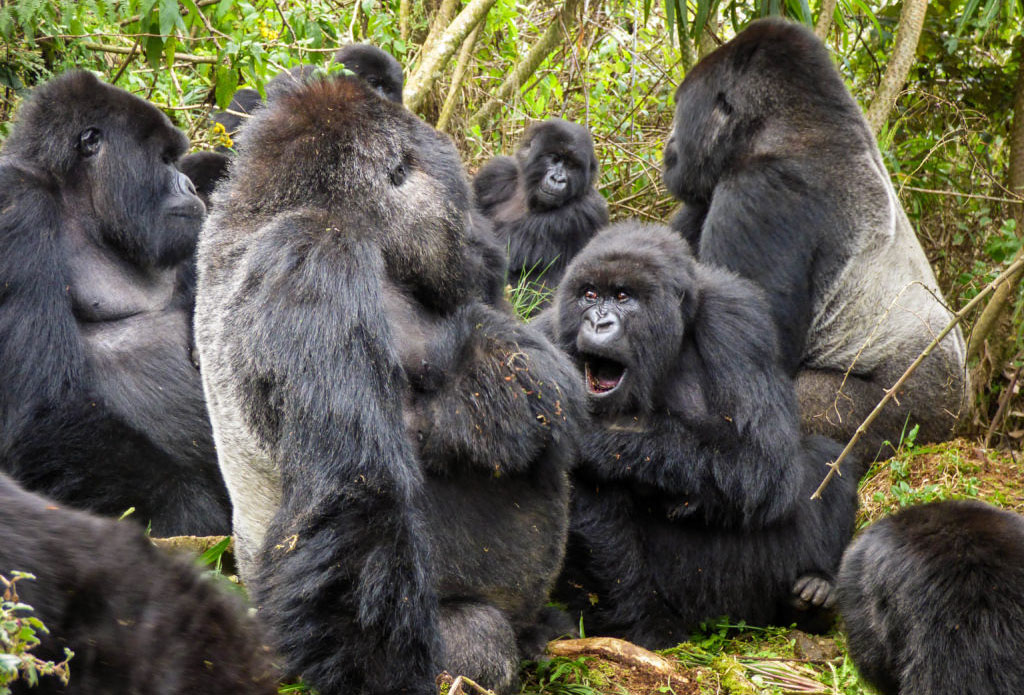
Our most valuable resource in life is time. We are allocated a finite amount of it at birth and that’s all we get. Nobody is told exactly how much and there is no way to get more of it once it’s used up.
Consider a job where you work for a certain amount of time and is paid a certain amount of money in return. Every hour you spend on working equals a certain amount of time you choose to convert to money. The exchange rate differs quite a bit, as some people can convert an hour’s work to a lot of money and some to very little. But regardless, it’s an hour of time spent that you’ll never get back. How should the fruits of this hour of your life be invested most wisely?
Of course, we will have to ask ourselves, what we want and what is important to us. That can seem easy to answer but difficult to keep focus on because there is one thing that is often tempting us and leading us astray: Investing time in social recognition.
Social recognition makes us feel great. If other monkeys in our group (be it five or five million) acknowledge to us that we are strong, beautiful, ripe for reproduction or wealthy, it gives us get an instant injection of feeling awesome. Our instinctual monkey brain tells us something like “Oh yeah! Now we for sure will have food and intercourse!“. We just secured the survival of ourselves and our children for a bit longer (until a younger, stronger monkey in a prettier car comes by to challenge our spot one day, of course).
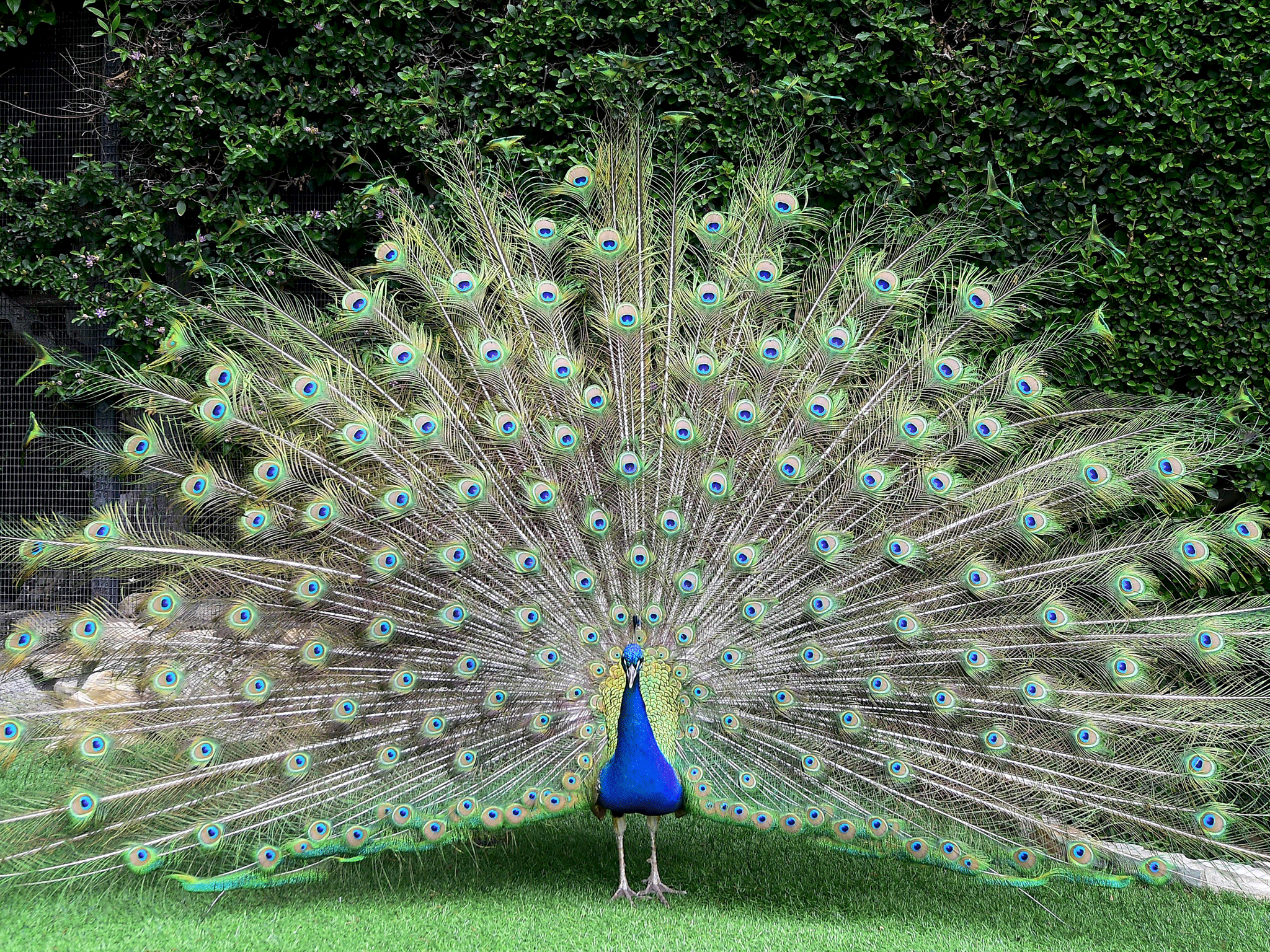
Let’s look at a few of examples of human investment behavior, where it’s obvious that the product you’re paying for is actually just social recognition:
- Why do some people feel like they need to wear a certain looking watch? Why do some people decide to pay €5,000 or more for one? It is certainly not because they need it to show what time it is, because a phone or €10 quartz watch will do that even more precisely for them.
- When buying a new car, why is the way it looks one of the primary thing we consider? It obviously has nothing to do with the actual transportation part.
- What does a €1,000 brand name handbag hold that a €30 doesn’t? It’s obviously not because it’s a significantly better place to store your phone and wallet.
- Why are people willing to invest an absurd amount of time (and money) to grow muscles? They disappear 10x as fast as they come. It’s surely not because they actually need them to lift heavy things.
- Why do people agree to pay 10x-100x markup on alcohol in a public, social setting? (bar, nightclub etc.) The content of the bottle is the exact same as you buy in the supermarket for a fraction of the price. Would you be willing to pay the same for it if you had to drink it from a plastic bag in an empty parking lot? They’re obviously not paying for the actual beverage.
- Why does it feel like a shirt or hat that with the name of a fancy place you’ve been on vacation is worth more than the exact same product without? Or a brand name piece of clothes that is only marginally better quality than the no-name version?

We could go on here, but you get the point. So what are we actually paying for? It is obviously not the actual, advertised product. The extreme markup on these items is only valuable to us because other people see us have it. When people see that you have an expensive watch, a nice car, a beautiful home or drink the most expensive water with bubbles, your monkey brain will tell you that you rise in the hierarchy. That’s what you actually pay for.
And this takes us to an important point. The value of buying social recognition only exist when there is an audience. If nobody see you flaunting your feathers, then it is worthless. If you really needed a watch to know the time but could only keep it in a drawer for nobody to ever see you wear it, would you choose a €10,000 Rolex over a €5 Hello Kitty watch? If you are home alone and want a mixed alcoholic drink, do you put fireworks in your bottle and perform a dance show on the table before you drink it? If you lived alone on a deserted island and nobody would ever get to see your upper body, would you care about spending 15 hours a week in the gym to try and achieve a sixpack? (yes, this deserted island apparently has a gym)

Every single fitness magazine cover in history is telling us we need to have visible abdominal muscles in order to impress monkeys we are sexually attracted to. But consider bodybuilding competitors or even the highest level MMA fighters. 9/10 of them do not have visible abs outside of competition season. And they’re professional athletes who do nothing but this for a living! You too can get abs for a few weeks in the summer, if you’re willing to suffer immensely for it. Question is if all the hours you put into that will actually translate to an output of equal value in the other end. Working out, of course, also has some health benefits, but let’s not fool ourselves to believe that is the primary reason for going to the gym.
It is no secret that humans are extremely willing to sacrifice their money and time for social recognition and nobody understand this better than businesses. Countless of them exist just because of this. The infamous “I Am Rich” app had a short lived fame in early days of the iPhone App Store. It did nothing but display a picture of a diamond and cost $999, the upper price limit of apps. It was taken down in less than a day, but still sold eight copies. That is of course an extreme example, but we could as easily make a list of a thousand other businesses that do this to a bigger or lesser degree in a variety of ways. Advertisement for watches, clothes and perfumes of course sell you anything but watches, clothes and perfume. But one category of businesses I find especially fascinating, is the one that literally just sell you an audience. Social media is the king of this; fundamentally just a very efficient—and hugely successful—way of providing you with an audience to whom you can show your feathers (or butt, in many cases). One example of this is Beltchecker.com, a personal project of mine that was born purely as an experiment of social recognition and would never have become a success without it.
I’ve been heavily involved in amateur sports competitions for most of my life and it’s the same story. They sell you the opportunity of having your hand raised in front of your fellow monkeys, be seen standing on a podium or winning a medal. The latter which, of course, has one purpose and one purpose only; a proof of social recognition for those who were not there to see it when it happened.
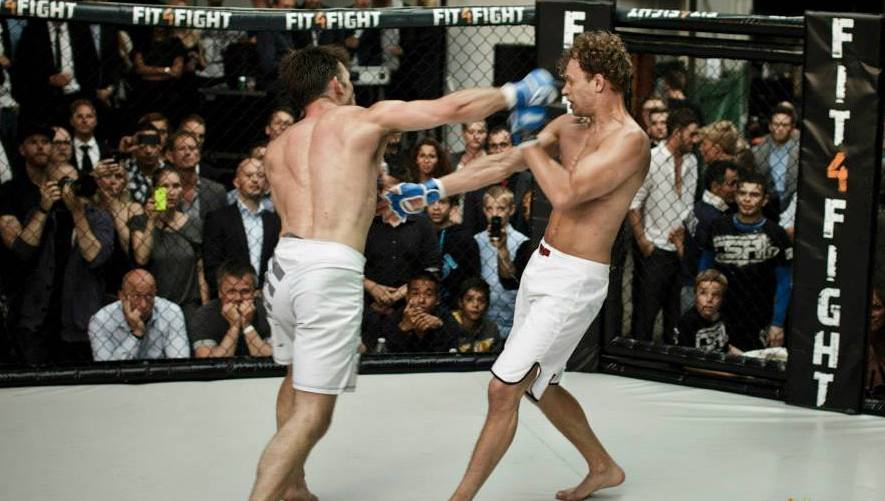
Nobody would pay for these activities if there wasn’t an audience to see them do it. In Jiu Jitsu, two people happily pay $240 to wrestle for 5 minutes if it includes a referee and a shot at glory, but they don’t want to pay $20 drop in fee to train two hours in an academy on their holiday. People competing in bodybuilding will pay to suffer for months on end to acquire the perfect body just for one day, just for one photo (then the rest of their life, they’ll reminisce about “back when I was in really good shape“—can’t be healthy). Obstacle course races (Tough Mudder etc.) are able to charge people €100 for the ability to be dirty and—literally—tortured on camera. The key of course is “on camera“, as that is the true value of the product. Don’t tell me anyone are crawling around in the mud and electrocute themselves all alone in the forest on the weekends.

I’ve seen a lot of this in my life. I’ve practiced, taught and sold sports for more than two decades and seen how people will dedicate hours on end of their free time every single day to obtain a medal, championship title, belt rank or just physically look in a certain way. I live on a Caribbean island built around luxury tourism and the amount of money people spend here to be seen is absurd. Equally absurd is what it’s possible to make money on here. Add the attention of all the restaurant’s guests to the sale of a bottle of champagne (a minute of music, crew dancing and some sparklers will do) and customers are suddenly willing pay a thousand euros or more for it. Put “St. Barth” on a €5 hat and you can sell it for €75. All so the friends at home can see you can afford to go on holiday on the most expensive VIP island.
Another extreme example of social recognition as a tool to make humans act irrational, is war. To convince people to go to war and risk their lives—or at best their mental health for the rest of their days—is extreme enough. But with social recognition, we can at least offer them the title of a “veteran” or “hero” in the eyes of society. We make sure that—if they survive—they feel special when they return home to a life of suffering from PTSD after fighting over territory, money and ideologies of men in power. They are sold the promise of having permanently secured their spot in the monkey hierarchy, forever to be recognized by the rest of us. Oh yes, that and free priority boarding. I am not saying people go to war for social recognition (although some might) and there are indeed important wars to be fought. But it is interesting how powerful social recognition is in this sense. If soldiers returned to zero medals and zero recognition from their countrymen, do you think they would feel differently about their sacrifice?
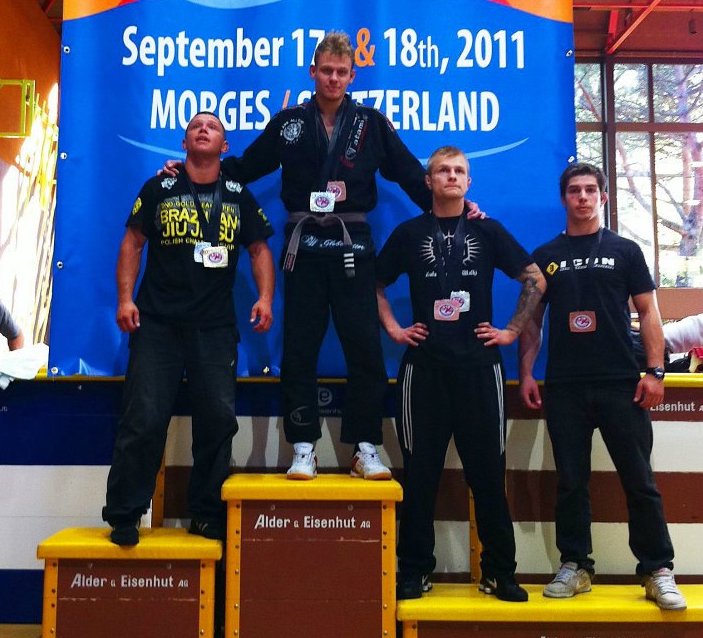
But let’s get back to the main question posed by this article. What is the Return On Investment? On a fundamental level, we all to—some degree—invest in social recognition. From the monkey analogy perspective, the only situation I can imagine where you would not do it whatsoever, would be if 1) You’re at the absolute bottom of the hierarchy with no hope or will to improve your situation or 2) You do not have an audience. That could mean you’re either something like a homeless drug addict or stranded on a deserted island. In either case, please seek help.
Investing in social recognition is of course not necessarily a bad thing. While it is no longer relevant for your actual survival and ability to eat, there might still very well be many benefits to it. It could also be a horrible waste of life, time and money (=all the same, in a sense).
The important point is, if we can admit to ourselves that we sometimes just act as monkeys who want to impress other monkeys, then we can take a step back and see it for what it is. Give it some thought, run the numbers and analyze the potential Return On Investment before making a decision. Ask yourself the question “What does this +1 in monkey status actually achieve for me, for my life?”.
I think that is healthy.

Perhaps you invest a lot of time in a job to become promoted by your boss one day. Your new title gives you recognition from your peers that make you feel great and with the increased salary you buy an expensive car and take up a monstrous mortgage to live in a nice area. But you also don’t get to see your kids grow up and you spend most of your adult life in an office working overtime. Is it worth it? What are you working for?
Perhaps you save up to buy a certain, expensive watch or piece of jewelry you “must” own. You invest many months of your life in this. People finally see you wear it. What now? What did you get out of that?
Perhaps you take up a loan to buy a new, cool car. You pay it off every month and it doesn’t feel like a lot, but in the long run, with interest and fees, you end up paying an extra 20% premium. You drive the car through town and notice other people noticing you. But what’s next? Does it change anything that people on the sidewalk think you’re cool for a few seconds? You could have purchased an older car; nobody would have noticed you but you also wouldn’t have added debt to your life.
Perhaps you always look to “upgrade” your life. Achieve better and better versions of your possessions and experiences. But luxuries quickly become necessities and it is extremely difficult to go back again. Once you fly business class, you never want to fly monkey class. Once you learn about fine wine, you can’t drink the cheap ones any more, even if they actually taste better (or you can’t taste the difference, oops). When a luxury lifestyle itself becomes expensive, you end up spending a large part of your life to uphold it, but for what? Perhaps to attract a visually higher quality mate? Other people then see you with said mate and are very jealous, but he/she is unfortunately a horrible person, it turns out. What now?
Individual little investments don’t seem very significant, but extrapolated over a lifetime, it can really add up. Consider a mortgage to buy a home you can just barely afford but it’s in the “right neighborhood” and you can forever be excited about the possibility that people at a cocktail party might ask where you live. Let’s imagine it’s €1,000,000 and a 30-year loan with 1% interest sounds pretty good; that’s only €3,700 a month after all. But in the lifetime of that mortgage, you will end up also paying €338,000 in fees and interest. In little bites over 360 months you’ll barely notice (by design), but that is real money. €338,000 worth of it, that is. How many hours—or years—do you have to sit in an office to earn that? What else could you have used that time on in your life?
Perhaps you are more into investing time in posting pictures of your life, meals, views and holidays on social media. “Look at me, my life is awesome [how about yours??? I thought so]“. Some people spend wild amounts of time and effort on this and most likely in the process will spend money on more expensive products and situations than if there wasn’t an online audience watching. Would it actually change anything if they stopped?
Despite looking at it from this angle, it is obvious why these investments are still tempting to us. Our survival has forever relied on showing off our value to a small social group of 30-50 individuals. Cue social media entering our lives out of the blue and gives us the an instant audience of unimaginable proportions. No wonder your inner monkey is über excited about that; it has literally waited millions of years for the opportunity!
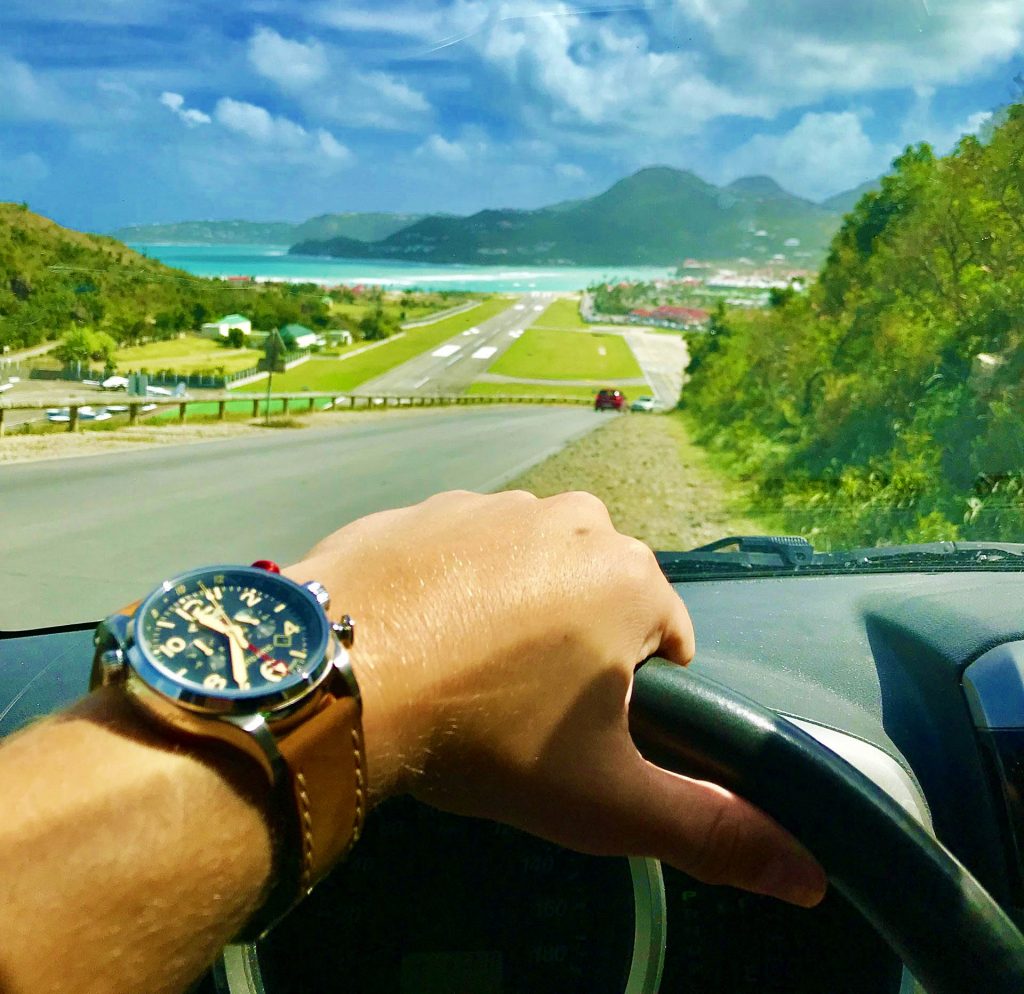
Maybe the investment in social recognition is indeed worth it. For some people, in some situations, I am sure it is. But what if we could let go of that strong survival instinct for a bit? Would some things seem less important? How much money and time could we allocated to invest in other things? Are there some things we dream of that we could maybe realize instead? Are there alternative investment opportunities for us that we didn’t even consider because we are so busy chasing something that’s actually not very efficient? We are all going to die very soon, so what is important?
Some people work themselves to death and live in nice houses (that they primarily have time to use for sleeping in). Some people own very little and get to travel the world for months, years or a lifetime. These are two extremes, but who are richer? And which of those two are you more likely to hear say something like “The kids grew up so fast, where did all those years go?“. Could you instead work hard, invest less in social recognition and thereby retire early? Even a pessimistic 5% compound interest goal per year on a low risk index fund could build up a solid retirement saving over a just few decades. What would be the final value of one hour’s work invested in short term social recognition vs. long term assets? What about 1,000 or even 10,000 hours of work?
Luckily, we don’t even have to guess here, as it is easy to calculate. 1,000 hours of work (equivalent to approximately 25 days/one month at 40 hours a week) invested with a market average return rate of let’s say 8% per year, will return 2,158 “hours” in 10 years and 4,660 “hours” over 20 years. If you spend it immediately on social recognition, they’d be worth exactly 1,000 hours of it, but if you resist the urge, a single month of work can grant you 4.7 months of holiday or earlier retirement, 20 years down the road. Now multiply that by a disciplined effort lasting many years.

I’m not actually sure what the conclusion of this article is. Everyone is different, so there probably isn’t one. Personally, I try to find a healthy balance. I value freedom, opportunities and experiences higher than anything, but I can’t say I’m not investing in social recognition either. I did, after all, buy a 15 year old yellow Jeep Wrangler, just because it’s a yellow Jeep Wrangler. It breaks all the time and is damn expensive to fix, but it looks cool and people notice it. I own a kind of fancy automatic watch and once spent €200 on a pair of sunglasses, both investments that now seem silly in retrospect. On the other hand, I buy new clothes less than once a year, I own a single pair of shoes, I have no debt and for every occasion I eat out, I cook at home thirty times. In terms of work, my daily focus is always to try and optimize the exchange rate between time and money. The more value I can convert an hour’s work to, the more freedom I will ultimately have.
Sam Walton’s famously last words on his deathbed was “I blew it”. He was the creator of Walmart and the richest man in the world—by all means an incredibly successful entrepreneur—but he ultimately regretted it all because he hadn’t been there for his family and kids. And once he finally realized it, it was too late.
You are born into this life with a single asset to invest: Time. How do you want your portfolio look?


Brilliant and totally right! I guess the question is “is gaining social recognition right?”. I think your final point about balance is the answer. If doing this stuff makes us feel good, then why not? Feeling good is good. But realising the temporary, fleeting, nature of it all is also good. Recognising what is actually of real value is the aim. Better to figure that out young and have an abundant life than miss the point and die old and rich but having blown it.
Hi Christian!
Very very very interesting post!
I like this « be honest with yourself » part about why we do things. As I read through, I’ve found myself trying to convince myself that I was outside this social recognition race/fight, but there is no escaping it. And admitting it, is what allows me to be less manipulated by this principle/addiction/behavior or at least it allows me to do this step back like you said.
Anyway, it’s good to discover this topic and read your thoughts about it!
Take care and speak to you soon!
Great article Christian!! No money in the world can buy back time lost. If one values family/ children the best investment is meaningful time spend with them. IMHO!
Hi Christian,
Fantastic article! I really enjoyed reading it.
The yellow Jeep, the watch and the bottle of champagne – btw did you downsize? I remember those bottles being bigger… – are all justified as long as accompanied by awareness. Awareness is what distinguishes (some of) us from the animal kingdom. You’re clearly more than aware. I appreciate and admire that you pursue living your life to the fullest while at the same time you see the irony of it all with signature dry Danish humor.
I realized I missed you in Arizona. Tore my meniscus…
Be well!
The Dutch Mark Chambers! I agree, awareness of own actions is the important tipping point. I’ll be back in AZ and hopefully your knee will be better by then 🙂